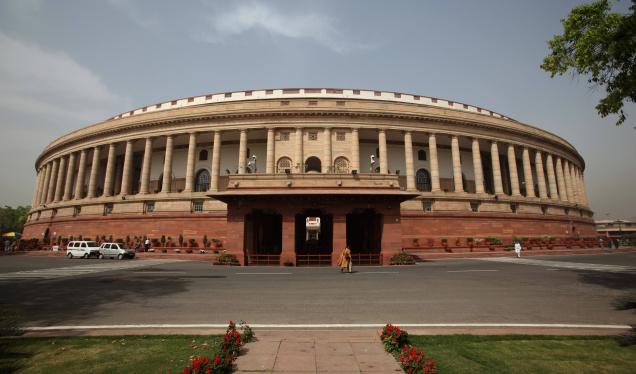Playing the role of a responsible Opposition, Trinamool Congress MPs today spoke on various issues of public importance in both Houses of the Parliament.
Speaking in Rajya Sabha during the Zero Hour, Md Nadimul Haque raised the issue of the plight of four lakh minority students in Bengal who were not receiving their scholarships. He urged the Centre to allow States to electronically transfer the funds through Direct Benefit Transfer.
Dola Sen spoke on the urgent demand for elimination of unmanned level crossings. In her speech she highlighted when Mamata Banerjee was the Railway Minister, due to her untiring and sustained work towards rail safety, the index for train accidents decreased significantly from 0.29 per million train km in 2004-05 to 0.17 in 2009-10.
In the Lok Sabha, Saugata Roy demanded that the powers of Tea Board Head Office in Kolkata not be curtailed in the name of decentralisation and said people of Bengal will protest severely against any attempts to shift the headquarters of Tea Board outside Bengal.
During Question Hour, Derek O’Brien asked the government in Rajya Sabha to enlist their plans to make life-saving drugs affordable for common people. In Lok Sabha, Prasun Banerjee wanted to know from the government what initiatives were being taken by them to popularise football in India.
Leader of the party in Rajya Sabha, Derek O’Brien today initiated a short duration discussion in the Rajya Sabha on the issue of price rise. “The Government has to be responsible for bringing down the prices of commodities in the markets,” he said. Citing the example of Sufal Bangla scheme and task forces formed the Bengal Government to keep a check on prices, Derek O’Brien advised the Centre to follow successful models from the State to control inflation.
During a discussion on the Benami Transaction (Prohibition) Amendment Bill, 2015 in Lok Sabha, Kalyan Banerjee and Saugata Roy appealed to the government not to amend the current Act and instead bring a fresh Bill altogether to deal with benami property.
Finally, at the end of the day’s proceedings in the Rajya Sabha, Dola Sen made a Special Mention on the successful Bengal model in combating Left-Wing extremism and asked the Centre to follow the footsteps of the State in dealing with issue elsewhere in the country.
Ahmed Hassan Imran raised the issue of reduction of central funding of several key schemes and said this was against the spirit of cooperative federalism. He asked the Government to explain how State Governments are to carry on with these welfare programmes, and ensure development in the States without adequate funds.


